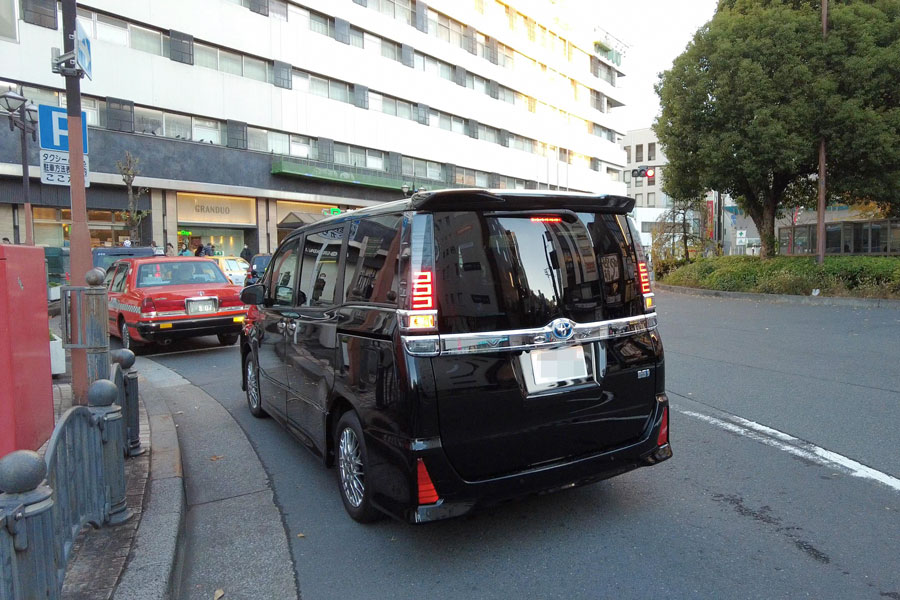
Klook Removes Listings of Illegal ‘White Taxi’ Providers, Pledges Enhanced Monitoring
![Booking.com Facilitates Illegal ‘White Taxi’ Service at Domestic Airports [Exclusive] Booking.com Facilitates Illegal ‘White Taxi’ Service at Domestic Airports [Exclusive]](https://www.traicy.com/wp-content/uploads/2023/12/booking-6.jpg)
Prime Minister Kishida called for an acceleration in the discussion of urgent measures for ride-sharing at the Digital Government Reform Council on November 22nd. Subsequently, in December, the government formulated a deregulation policy that, under certain conditions such as being employed by a taxi company, would allow the use of private cars for passenger transport without the need for a ‘Type 2 Driver’s License’ commonly required for taxi operations, indicating a move towards the legalization of ride-sharing in Japan.
However, as of the current situation, ride-sharing is not yet legalized, and so-called ‘white taxis’—private cars with white license plates—operating passenger transport without a ‘Type 2 Driver’s License’ constitutes illegal activity. Recently, there has been an increase in such ‘white taxis’ at airports within Japan, which is becoming a social issue and has been featured in the news.
It was presumed that these ‘white taxis’ were providing services through foreign-language dedicated websites and proprietary apps, but our investigation revealed that international Online Travel Agents (OTAs) operating in Japan are also facilitating these services.
For instance, Booking.com offers a service called ‘Airport Taxi.’ Searching for a taxi from Haneda Airport to central Tokyo on their website’s airport taxi reservation page and selecting options like ‘Standard’ or ‘Minivan’ switches to a screen for entering contact details and payment method.
The company name of the actual car dispatch service provider is displayed at this point. Although there are multiple service providers, none appeared to operate within Japan as per search results—they all seemed to be overseas services.
Using Booking.com’s ‘Airport Taxi,’ we requested a ride from Haneda Airport to Yurakucho Station and were dispatched a vehicle from a service called ‘Tianjin OUYA Automobile Rental Service.’ As suggested by the company name and confirmed by the phone number listed in the reservation details, with the country code ’86,’ the service appears to be Chinese.
The service was smooth, with notification of arrival prior to the scheduled time and msg specifying the meeting point, which was on the second floor of parking at Haneda Airport Terminal 3.
The driver, presumed Chinese based on her manner of speaking, waited by a luxury foreign car. However, the license plate was ‘white’ indicating private use, not the ‘green’ for authorized passenger services. When asked about the ‘Type 2 Driver’s License,’ her response was unclear and when asked about taxi operations, she said she was not a taxi driver but helping a friend.
We proceeded with the ride which, despite the pricey fare of 15,560 yen, took nearly an hour to reach Yurakucho Station using only local roads instead of the highway. In all other respects, the service was fairly typical of a dispatched taxi or rideshare, but the fact that it utilized a private car with a ‘white number’ plate makes it currently illegal.
This investigation was conducted on Booking.com, but other platforms such as Trip.com, Agoda, and Klook were also found to offer similar airport transfer services. While some Japanese taxi and limousine companies were named as providers, most displayed were overseas companies or services.
We have reached out to Booking.com, Trip.com, Agoda, and Klook with the following questions and will update with their responses as they are received.
■ Questions Sent to the Companies
1. Is your company aware that the so-called ‘white taxis’ are being dispatched?
2. Does your company consider the provision of services involving ‘white taxis’ in Japan to be legal?
3. When contracting with providers for your ‘airport transfer’ service, does your company verify whether the service can legally operate within Japan?
4. Will your company continue to offer services in Japan even if it involves the dispatch of ‘white taxis’?